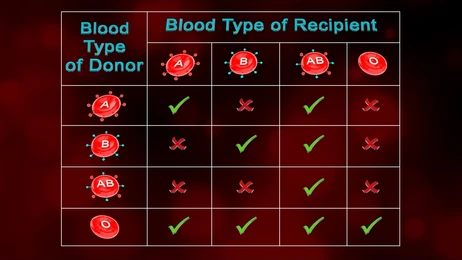Date: June 21, 2024
The Role of Blood Type Compatibility in Liver Transplants
In the complex arena of transplants, the role of blood grouping cannot be overemphasised, not even in liver transplants. Relatively, blood type compatibility plays a major role in determining whether the recipient’s body will accept the donated liver or not.
Understanding Blood Type Matching
Blood type matching is another crucial procedure that has to be carried out before a transplant operation. The four human blood groups are A, B, AB, and O, and each of them possesses specific antigens on the surface of red blood cells. These antigens stimulate the immune system to react towards the host immune mechanism. Sometimes, the body identifies the antigens of a foreign body; in this case, the transplanted organ may be attacked, and rejection occurs. Therefore, there is improvement in matching the compatibility of donor and recipient blood types to reduce the occurrence of such unfavourable reactions.
The Role of Blood Type in Liver Transplants
Liver transplants are quite different from other transplants because the liver is the only organ that has the ability to regrow. This feature helps move organs donated from live donors to be used for multiple recipients after being split. However, for these procedures to be successful, a lot of emphasis is placed on blood type compatibility. The compatibility aspect of the blood type ensures that the immune systems of both the donor and the recipient do not attack the transplanted liver due to the incompatible blood group, which minimises the possibility of rejection and raises the prospects of the patient’s recovery.
Blood Type Compatibility in Liver Transplants
To understand compatibility better, here’s a quick guide:

Whereas in other transplants, compatibility is not much of an issue, in Liver transplantation the matching process becomes crucial. For example, if a person is an O type, he or she can be a source of liver for any type of recipient, hence very essential in transplant cases. On the other hand, the recipient with blood type AB can accept liver from any of the donors which means this kind of recipient has high prospects of getting the best match.
Impact on Transplant Success Rates
Blood type compatibility between the donor and the recipient is imperative to enhance the success of the liver transplant. Those who find matches for their blood type experience fewer acute rejection episodes and better overall outcomes (Lofthouse et al., 2023). This is especially important in countries like India, where the demand for transplants is high, and any mismatch could be the difference between life and death.
Transplant India
At Transplant India, our efforts extend beyond organ donation to providing comprehensive support for patients, including financial help for liver transplant patients in India through crowdfunding for organ transplant initiatives. By leveraging community support and online platforms, we can gather the necessary funds to support those in need. Our mission is to ensure no patient is left behind due to financial constraints.
Conclusion
Blood type matching is a cornerstone of successful liver transplants. Ensuring compatibility between donor and recipient blood types is essential for reducing the risk of rejection and improving overall transplant outcomes. At Transplant India, we are committed to promoting awareness and supporting liver transplant patients, working towards a future where every patient receives the needed organ. Your support can help make this vision a reality, offering countless individuals hope and a second chance at life.